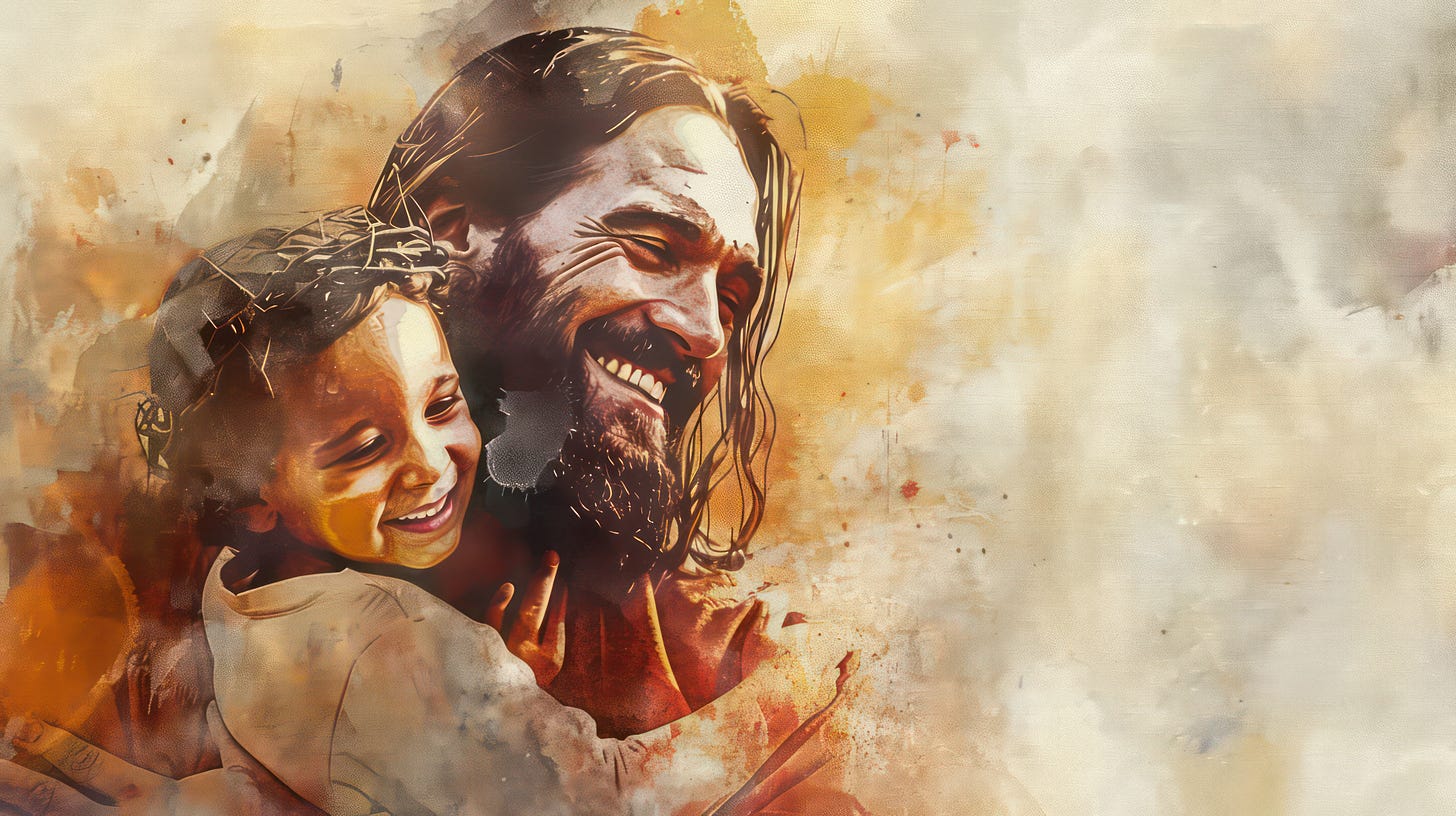It’s interesting how often children show up in the life of Jesus.
In Matthew 14, 15, and 19, we see parents bringing their kids near Him to watch, listen, and be blessed.
That stands out when you consider how children were typically treated during that era. They weren’t seen as important. They didn’t have status or voice. They were often in the background, expected to be quiet and stay out of the way. You know, I think a lesser version of this carried over into the last century. I can remember my grandmother and mother telling me when I was young, “Children are meant to be seen and not heard.” I don’t recall the context in which they said to me that, but the phrase still stands out in my mind — even today.
But I digress. Know this. Jesus changed the way His culture viewed children.
He welcomed them. He touched them, talked to them, and included them in His teaching.
He didn’t just tolerate them. He valued them.
That’s a picture of His whole ministry. Jesus constantly welcomed the people others ignored … the weak, the poor, the outsider, the overlooked. And He showed us what God's heart really looks like.
A Bigger Picture: The Church and Its Witness
That brings us to Matthew 18.
This chapter gives the first extended teaching Jesus gives about the church. In Matthew 16:18, He said He would build it. Now, in chapter 18, He begins explaining how life in the church is supposed to work.
And it starts with a child.
The disciples come to Jesus with a question: “Who is the greatest in the kingdom of heaven?”
It wasn’t the first time they asked something like this.
Pride and status were still shaping their perception of the kingdom. Perhaps this issue came to a head after the Transfiguration in the previous chapter, when only Peter, James, and John were allowed to accompany Jesus up the mountain. Maybe the others were feeling left out or jealous.
Whatever the reason, their question falls short.
And Jesus answers in a way that no one expects.
When a Child Becomes the Lesson
He doesn’t lecture. He doesn’t shout.
He calls over a child. A little one. Probably a toddler, maybe even one of Peter’s children. He brings the child into the middle of the group and says, in essence, “This is what greatness looks like.”
He doesn't say the child is great because of wisdom or power. The child becomes the example because of what the child lacks: pride, status, self-importance.
And then Jesus says something shocking: “Unless you turn and become like little children, you will never enter the kingdom of heaven.” (v. 3)
He’s not talking about physical age. He’s talking about heart. Humility. Dependence. Simplicity. This is a big shift.
The disciples are thinking about ranks. Jesus is talking about repentance.
They want to know who will sit highest. Jesus wants them to bow the lowest.
Why This Still Matters Today
We need this message just as much as the disciples did.
Matthew 18 isn’t just about kids. It’s about how we live together in the church. It’s about how we relate to each other, how we handle conflict, and how we treat the people we worship with each week.
If we don’t learn to live with humility and love inside the church, we won’t have credibility outside of it.
The world is watching. Our kids are watching. And when we say we care about unity and love, but don’t actually live it, it shows.
So this isn’t just about being nice. This is about taking seriously what Jesus says about how His people should act.
The health of the church, its witness to the world, and the direction of our hearts all start right here, with a child in the middle, and the challenge to become like them.
Tomorrow:
What does it mean to become like a child? We’ll examine the words of Jesus in verses 3–4 and discuss the humility and dependence He calls us to.




